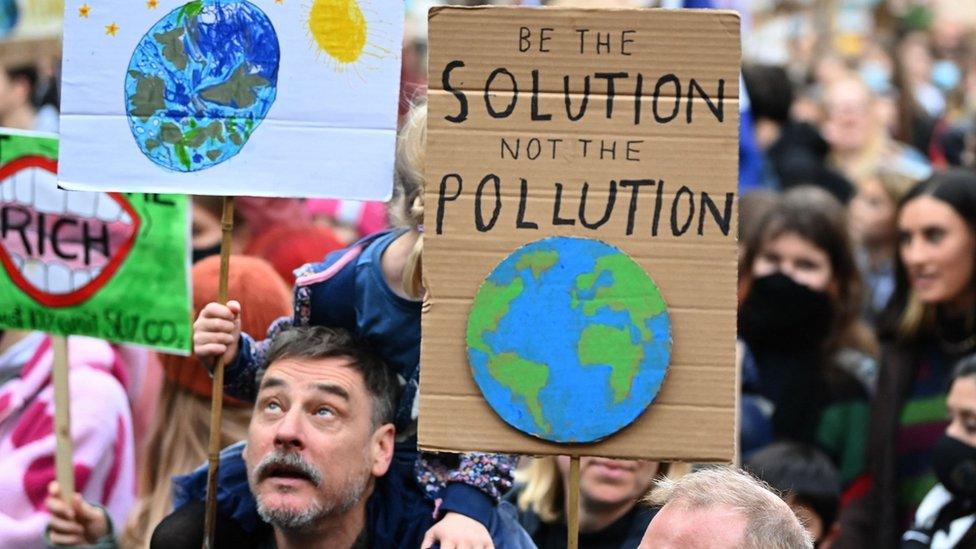Scotland loses UK climate change lead, advisers warn
- Published
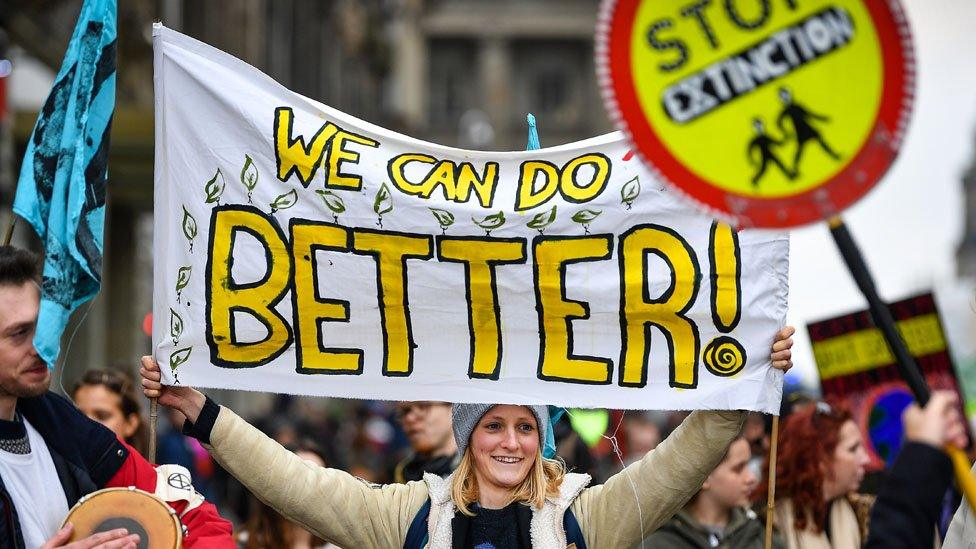
Scotland has lost its lead over the rest of the UK on tackling climate change, advisers have warned.
A report from the Climate Change Committee (CCC) said progress on cutting greenhouse gas emissions has "largely stalled" in recent years.
Its independent assessment said Scotland's targets - some of the toughest in the world - were "increasingly at risk".
The Scottish government insisted progress was being made in many areas.
The Scottish government has set a legally-binding target to cut greenhouse gas emissions to net zero by 2045, five years ahead of the date set for the UK as a whole., external
As a staging post, it legislated in 2019 to cut emissions by a massive 75% from 1990 baseline levels by the end of this decade.
That is way ahead of the UK government's aim to reduce emissions by 68% in the same time frame.
The latest CCC report points out that since its Climate Change Act became law in 2009, the Scottish government has failed to achieved seven of the 11 legal targets.
Although it met the latest one, for 2020, it said that was because the Covid pandemic saw a temporary drop in transport emissions and that the figures will rebound in future years.
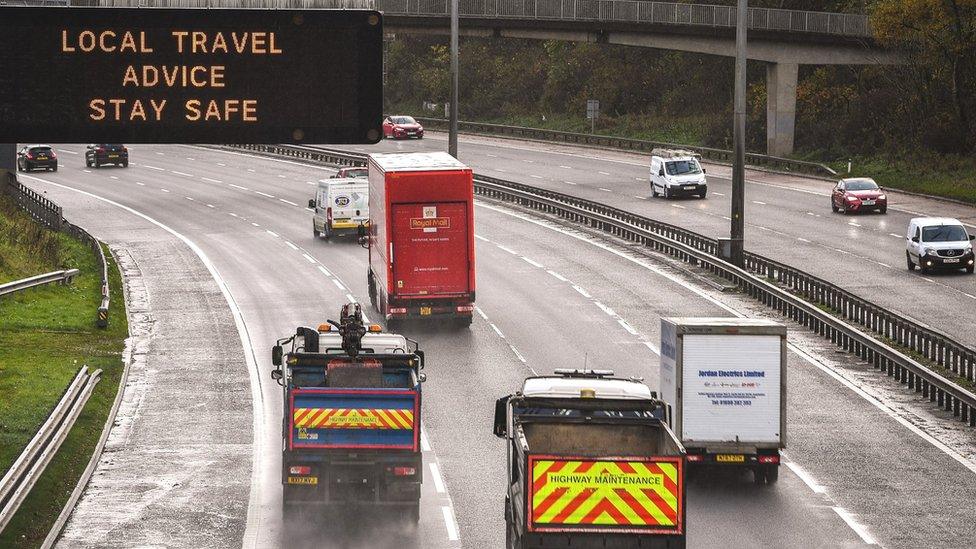
Vehicle emissions fell during 2020 as restrictions on travel were in place across Scotland
The figure for 2020 was a 58.7% reduction from the 1990 baseline but the previous year it was just 51.5% - well short of the 55% target.
The CCC report recommends lowering the annual targets so that the 2025 aim would be to reduce emissions by 61.7% rather than 65.5%.
The report describes the target to cut emissions by 75% by 2030 as "extremely challenging" and suggests a 65% to 67% cut is more feasible.
It said the Scottish government lacked a clear delivery plan and had not offered a coherent explanation for how its policies would achieve the targets.
While the committee praised the ambition and focus on a transition which is fair and equitable, it said that should only be applauded if the targets are achieved.

CCC chief executive Chris Stark told BBC Scotland he did not think the Scottish government was doing nearly enough
CCC chief executive Chris Stark told BBC Scotland he did not think the Scottish government was doing nearly enough to get on track with its legal targets.
He said: "We have seen failures across the board and it's a shame to say that.
"This year we are able to say Scotland has lost its lead in decarbonising.
"Scotland is at the same rate now as the rest of the UK and that did not used to be the case."
Mr Stark said Scotland's early success was in cutting emissions from electricity generation such as closing coal-fired power stations.
But he said the Scottish government had the powers to take action on decarbonising buildings, transport and farming and had not used them.
Net Zero minister Michael Matheson said the Climate Change Committee's advice was a reminder of the scale of the challenge.
He said: "Progress has been made - Scotland is already more than half way to net zero - but we are now entering the most challenging part of the journey to date, with a need to halve our emissions again within the next eight years."
Mr Matheson said that in many areas progress on reducing emissions in Scotland was dependent on decisions taken by the UK government.
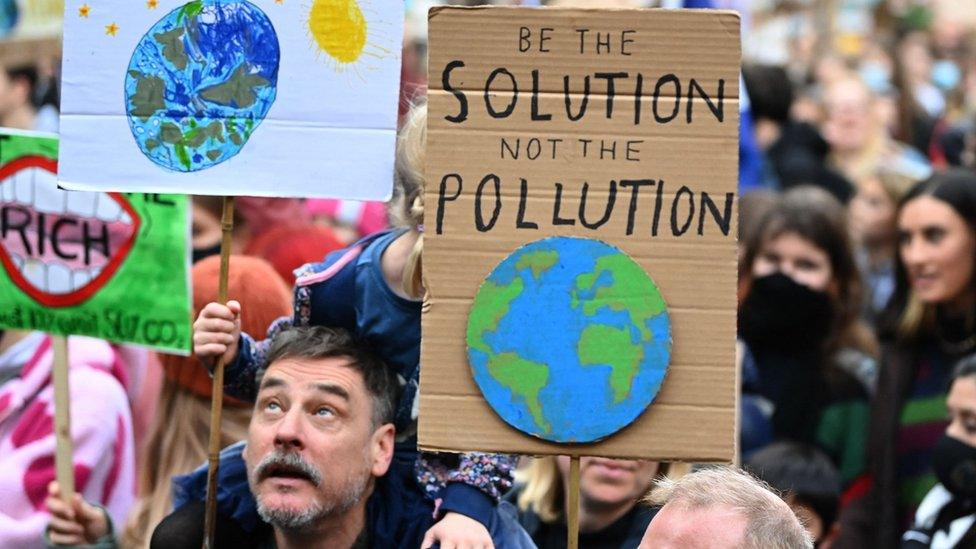
In Paris, in 2015, world leaders committed to limiting global warming to between 1.5 and 2 degrees Celsius.
Harmful greenhouse gas emissions - which cause the earth to warm - have more than halved in Scotland in the past 30 years.
But with the planet already 1.1C warmer than pre-industrial times, rapid progress is needed in the next 10 years if those temperature targets are to be met.
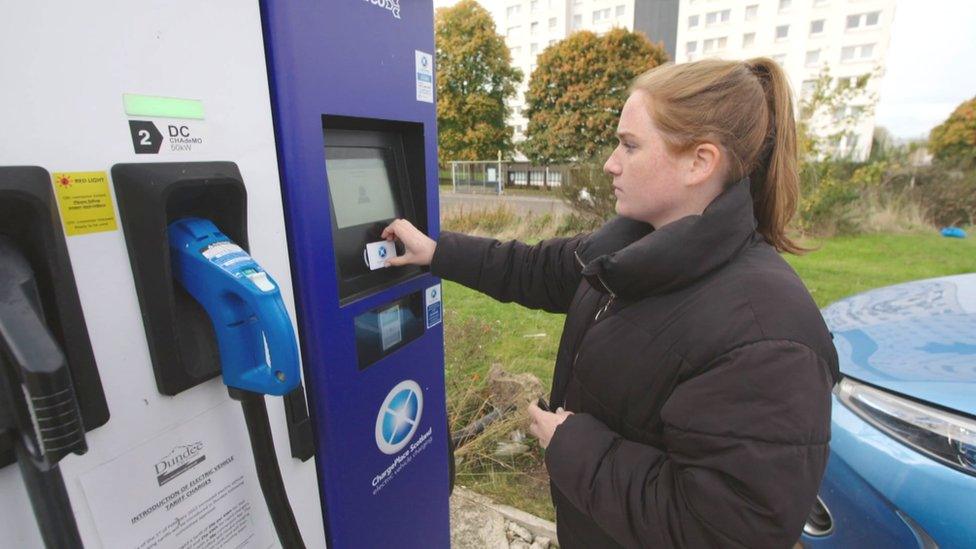
Sales of electric cars are lower than those in England
Transport is Scotland's biggest emitter of greenhouse gases but the committee said, despite having higher ambitions to decarbonise the sector, plans are falling behind other parts of the UK, with sales of electric cars now lower than those in England.
It said the Scottish government has been unwilling to consider measures to recover the shortfall such as by restricting growth in aviation.
The committee said policies to decarbonise buildings were "wholly inadequate" and would not deliver the scale of low carbon heating required.
On agriculture and land use it said it was unclear how the emissions targets could be delivered without new policies and said restoration rates for peatland - a key store of carbon - were less than half the Scottish government's targets which is itself less than half of the CCC's recommendations.
Mike Robinson, from Stop Climate Chaos Scotland (SCCS), said the report was a "wake up call" for the Scottish government.
He said: "Scotland needs bold, decisive and immediate action to reduce emissions. Without this, the trend of missed targets, and failure to tackle the climate crisis will only continue."
Fabrice Leveque, from environmental campaign group WWF Scotland, said the report did not pull its punches.
He said that without ambitious efforts to transform how we heat our homes and new policies to reduce farming emissions Scotland's mantle of climate leader could be in jeopardy.
Meanwhile, Scottish Conservative Net Zero spokesman Liam Kerr MSP said the damning report showed the SNP-Green government were falling miles short in taking the action required to tackle the climate emergency.
Scottish Labour accused the Scottish government of "empty rhetoric" and warned that climate targets were "in danger of becoming meaningless".
- Published7 December 2022

- Published7 December 2021
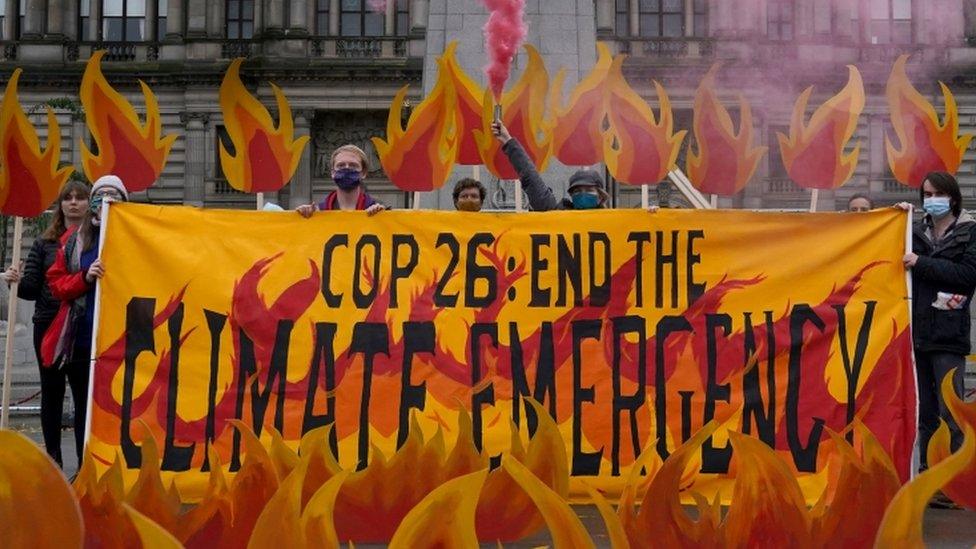
- Published2 November 2022

- Published2 November 2020
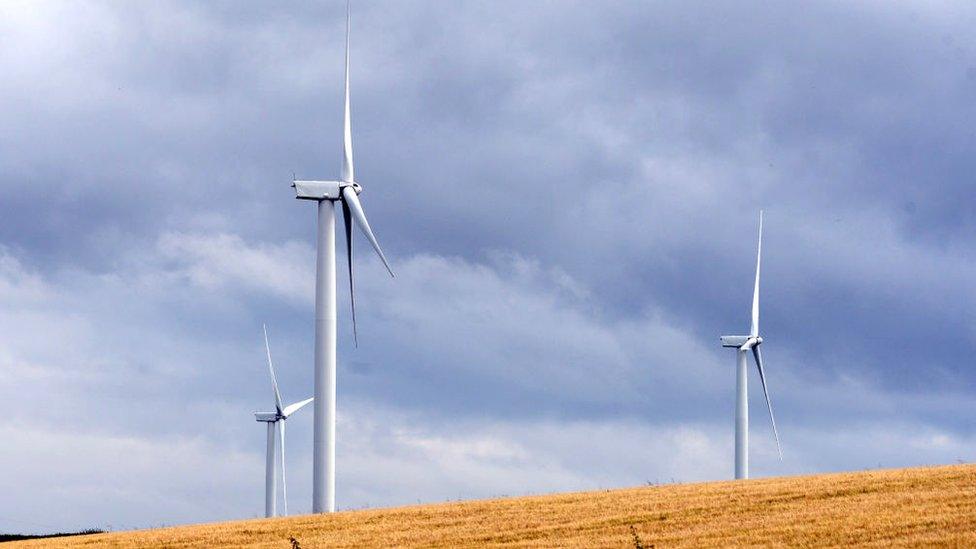
- Published15 March 2022

- Published13 October 2022
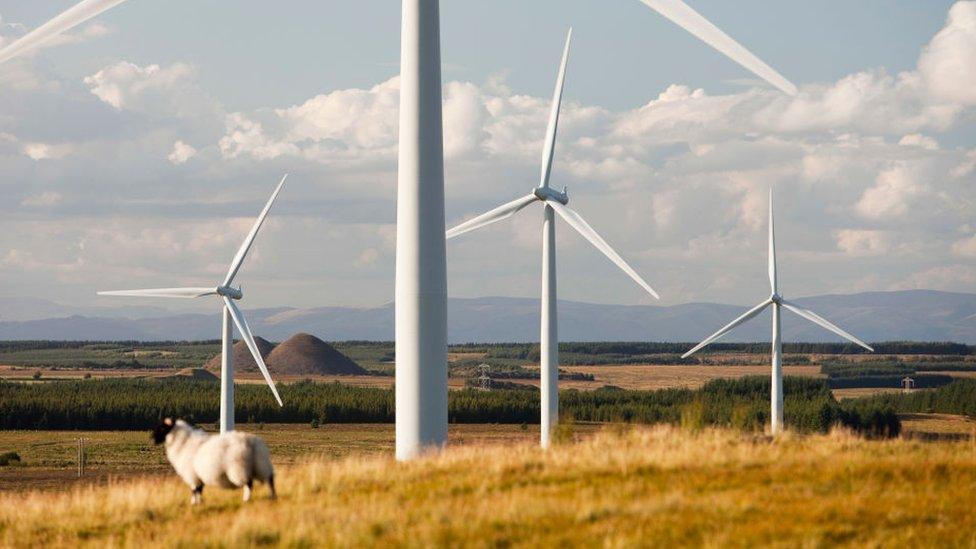
- Published31 December 2021
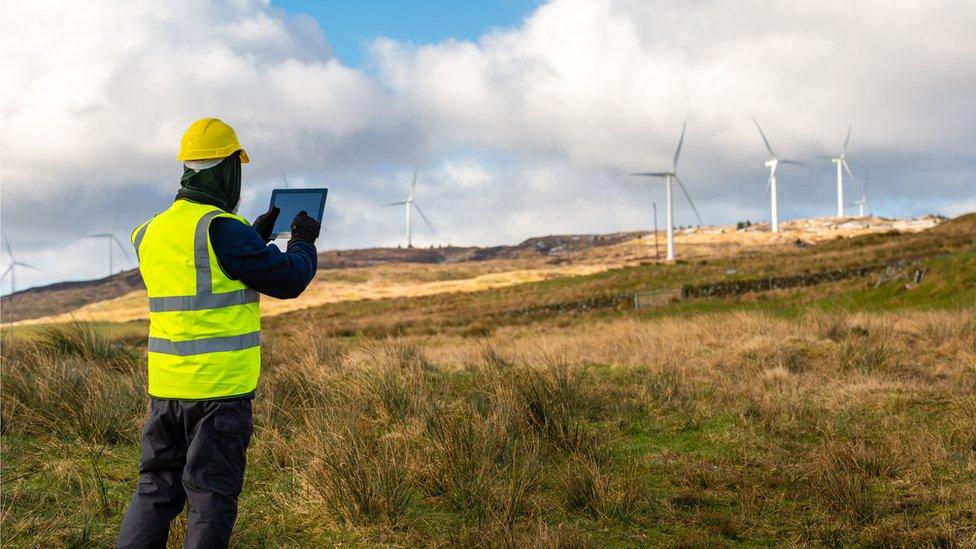
- Published7 November 2022
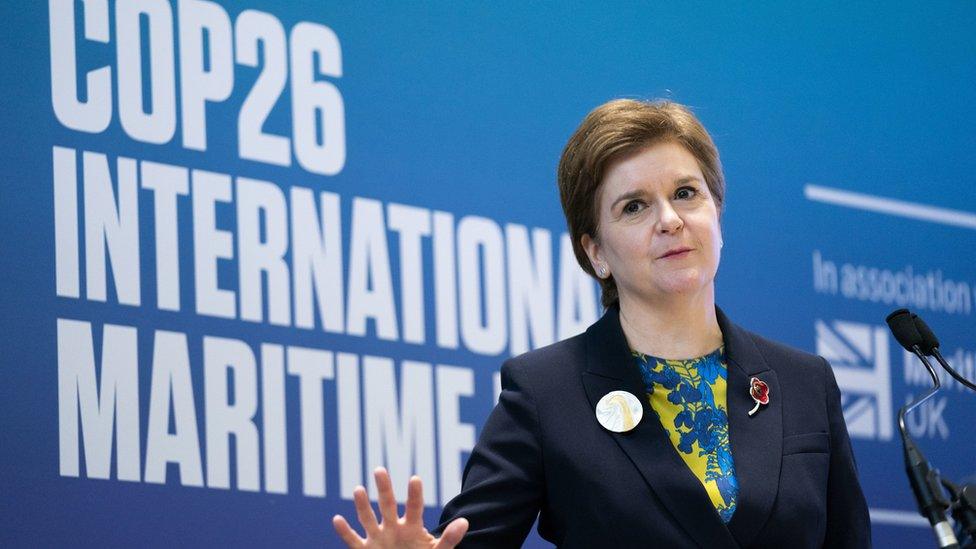
- Published7 June 2022
